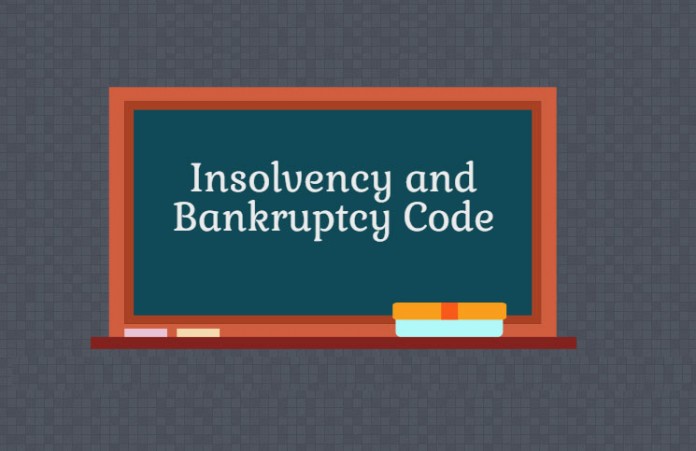In this blog post, Pranav Khatavkar, an independent legal professional, who has penned India’s first commentary on the Insolvency and Bankruptcy Code, 2016, provides a summary of the new legal concepts that have been introduced into the code.
Introduction
The Insolvency and Bankruptcy Code, 2016 (“Code”) has been introduced with the primary objective of increasing lender’s confidence and facilitate the expansion of the credit market in India.As stated in the objects clause, the objective of this new law is to promote entrepreneurship, availability of credit, and balance the interests of all stakeholders by consolidating and amending the laws relating to reorganisation and insolvency resolution of corporate persons, partnership firms and individuals in a time bound manner and for maximization of value of assets of such persons and matters connected therewith or incidental thereto. The Code has introduced a host of new legal concepts. A short summary of these new concepts is discussed in this article.
Insolvency and Bankruptcy Board of India (Section 188)
The Code under Section 188 proposes the establishment of a Regulatory Authority/Agency called the Insolvency and Bankruptcy Board of India (“Board”). The Board shall primarily be entrusted with the monitoring and regulation of the insolvency sector in the Indian economy and regulation the entities as have been established under the Code.
Features of the Board (Section 188)
- Body Corporate- The Board shall be an independent body corporate and shall have its independent corporate identity.
- Perpetual Succession- The Board shall continue to exist in the eyes of the law even if all its members/associates die, become insolvent or become persons of unsound mind.
- Common Seal- The Board shall have a common seal which will form an essential part of its identity and shall appear on all the official documents and records pertaining to the Board.

- Powers Pertaining to Property- The Board shall have the power to acquire, hold or dispose of both movable and immovable property.
- Power to Enter into Contract- The Board has the power to enter into contract in its own capacity.
- Power to Sue and Be Sued- The Board in its own name and under its common seal can sue and be sued.
Functions of the Board (Section 196)
In accordance with what has been specified under Section 196, some of the major functions that will be performed by the Board are as under:-
- Register insolvency professional agencies, insolvency professionals andinformation utilities and renew, withdraw, suspend or cancel such registrations.
- Specify the minimum eligibility requirements for registration of insolvency professional agencies, insolvency professionals and information utilities.

- Levy fee or other charges for the registration of insolvency agencies, insolvency professionals and information utilities.
- Specify by regulations standards for the functioning of insolvency professional agencies, insolvency professionals and information utilities.
- Lay down by regulations the minimum curriculum for the examination of the insolvency professionals for their enrolment as members of the insolvency professional agencies.
Insolvency Professionals
Insolvency Professionals are those licensed professionals who are appointed by Insolvency Professional Agencies who would take on the roles of Resolution Professional/Liquidator/ Bankruptcy Trustee in the Insolvency Resolution Process of different entities.
Enrollment and Registration of Insolvency Professionals (Section 207)
The Insolvency Professional has to be registered with the following:-
- Insolvency Professional Agency
- Insolvency and Bankruptcy Board of India
Functions and Obligations of Insolvency Professionals (Section 208)
- Functions pertaining to fresh start process as have been specified under Chapter II of Part III.

- Functions pertaining to individual insolvency resolution process as have been specified under Chapter III of Part III.
- Functions pertaining to corporate insolvency resolution process as have been specified under Chapter II of Part II.
- Functions pertaining to individual bankruptcy process as have been specified under Chapter IV of Part III.
- Functions pertaining to liquidation of a corporate debtor firm as have been specified under Chapter III of Part II.
Code of Conduct to be followed by Insolvency Professional (Section 208)
- Taking reasonable care and diligence while performing his duties.
- Complying with all requirements and terms and conditions specified under the bye-laws of the insolvency professional agency of which he is a member.
- Allowing the insolvency professional agency to inspect his records.
- Submitting a copy of the records of every proceeding before the Adjudicating Authority to the Board as well as to the insolvency professional agency of which he is a member.
- Performing such functions in such manner and subject to such conditions as may be specified.
Insolvency Professional Agencies
Insolvency Professional Agencies are those specialized bodies/agencies that will be entrusted with the task of registration and governance of Insolvency Professionals.
Registration as an Insolvency Professional Agency (Section 206 and 207)
In order to function as an Insolvency Professional Agency, one has to be registered and obtain a license from the Board.
Functions of an Insolvency Professional Agency (Section 204)
- Grant membership to persons who fulfill all requirements set out in its byelaws on payment of membership fee.

- Lay down standards of professional conduct for its members.
- Monitor the performance of its members.
- Safeguard the rights, privileges and interests of insolvency professionals who are its members.
- Suspend or cancel the membership of insolvency professionals who are its members on the grounds set out in its bye-laws.
- Redress the grievances of consumers against insolvency professionals who are its members; and
- Publish information about its functions, list of its members, performance of its members and such other information as may be specified by regulations.
Information Utility
An information utility is an agency that is in charge of collecting, collating and disseminating financial information. The business of the information utility is primarily concerning financial information.
Registration of the Information Utility (Section 210) – An information utility shall be registered with the Board.
Obligations and Functions of Information Utility (Section 214)
- Create and store financial information in a universally accessible format.
- Accept electronic submissions of financial information from persons who are under obligations to submit financial information under sub-section (1) of section 215 in such form and manner as may be specified by regulations.
- Accept, in specified form and manner, electronic submissions of financial information from persons who intend to submit such information.
- Meet such minimum service quality standards as may be specified by regulations.
- Get the information received from various persons authenticated by all concerned parties before storing such information.
- Provide access to the financial information stored by it to any person who intends to access such information in such manner as may be specified by regulations.
- Publish such statistical information as may be specified by regulations.Have inter-operability with other information utilities.
Conclusion
The Insolvency and Bankruptcy Code is thus a comprehensive and systemic reform, which will give a quantum leap to the functioning of the credit market. It would take India from among relatively weak insolvency regimes to becoming one of the world’s best insolvency regimes. The passing of this Code and implementation of the same will give a big boost to ease of doing business in India.
 Serato DJ Crack 2025Serato DJ PRO Crack
Serato DJ Crack 2025Serato DJ PRO Crack










 Allow notifications
Allow notifications


